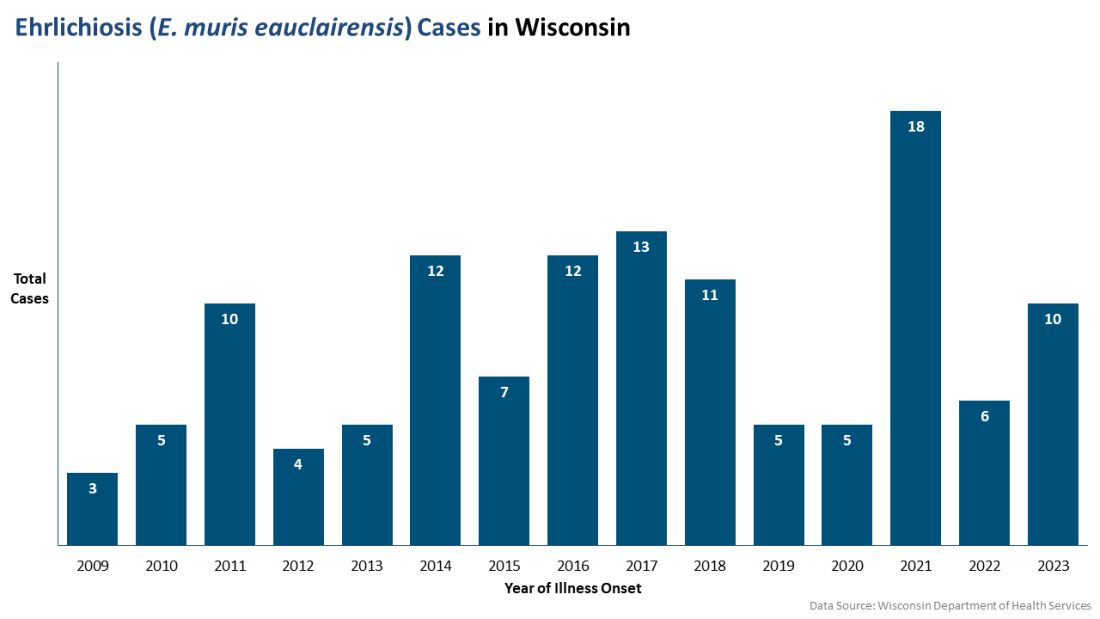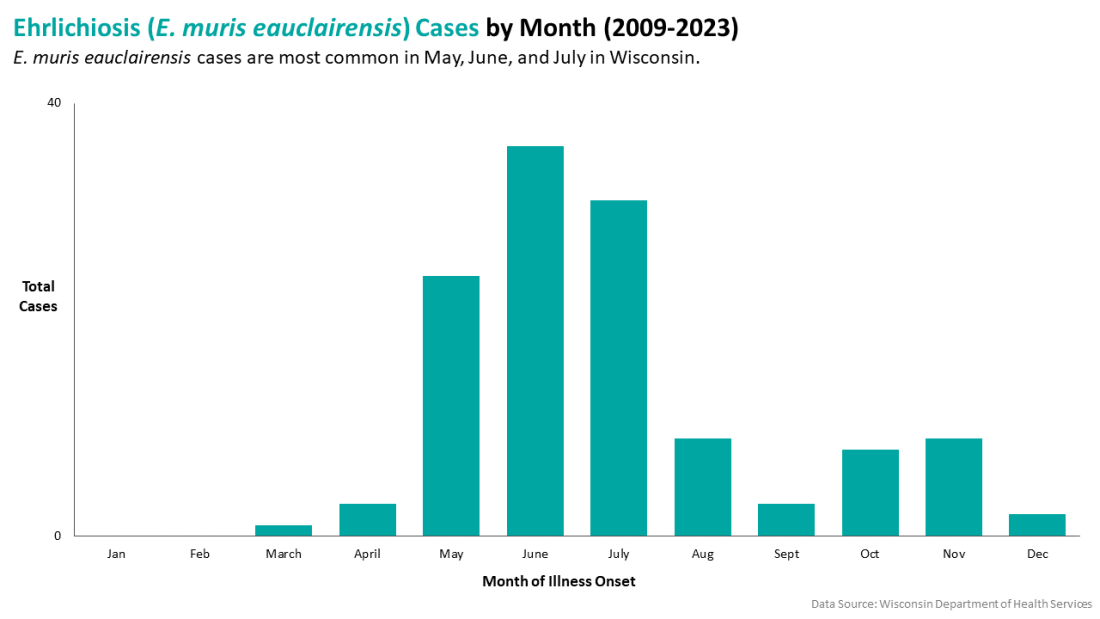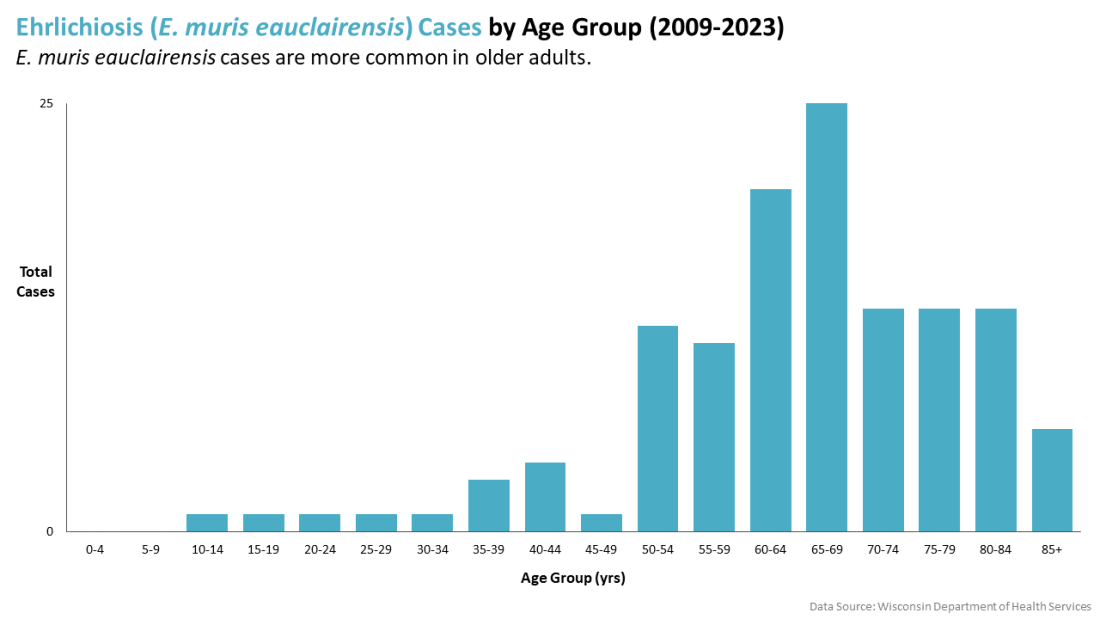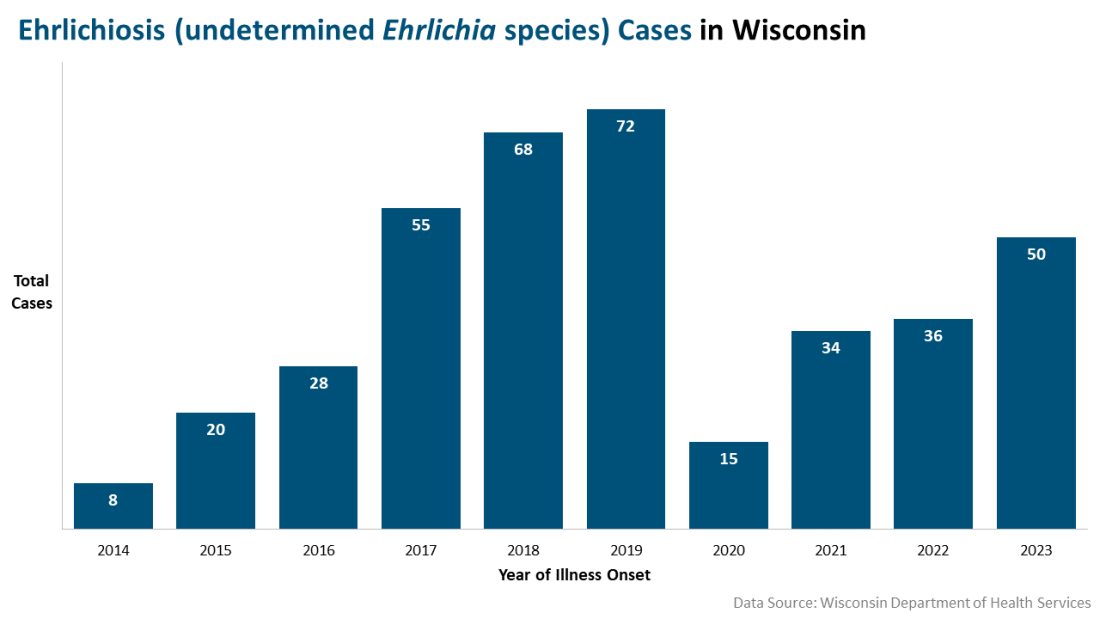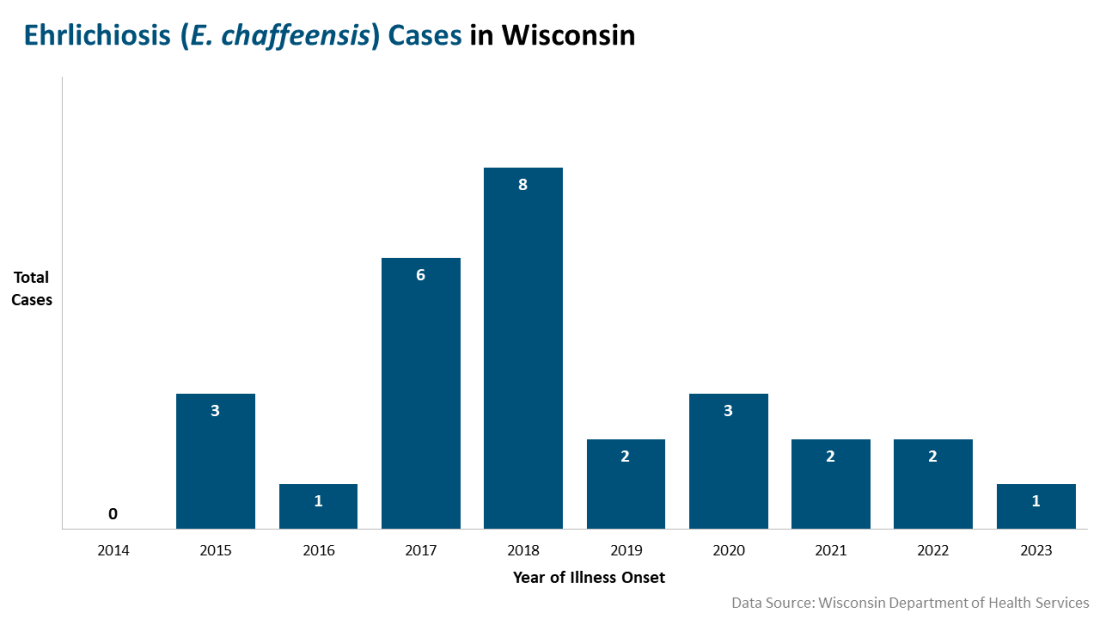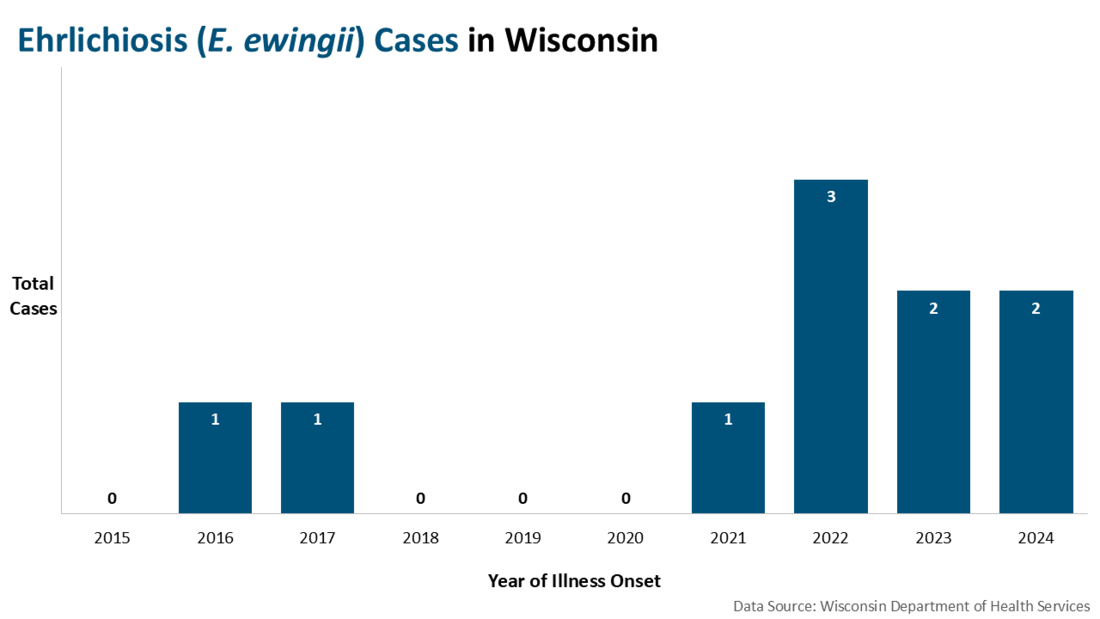Ehrlichiosis: Wisconsin Data
In Wisconsin, ehrlichiosis is caused by Ehrlichia muris eauclairensis. Ehrlichis muris eauclairensis was first discovered in 2009 in patients from Wisconsin and Minnesota.
Other species of Ehrlichia bacteria, Ehrlichia chaffeensis and Ehrlichia ewingii, cause ehrlichiosis in the southeastern and south-central United States. Most people in Wisconsin infected with Ehrlichia chaffeensis or Ehrlichia ewingii acquired their infection while traveling to other states.
In 2024, nine confirmed cases of ehrlichiosis caused by Ehrlichia muris eauclairensis were reported.
Ehrlichiosis is preventable and treatable. Learn more about Tick Bite Prevention.
Read about Treatment and Signs and Symptoms from the CDC (Centers for Disease Control and Prevention).
The map and graphs on this page show statewide data for ehrlichiosis.
For national data, visit the CDC webpage on Ehrlichiosis Epidemiology and Statistics.
Ehrlichiosis (E. muris eauclairensis) data
Ehrlichiosis cases (species of Ehrlichia not determined)
Some laboratory tests for ehrlichiosis are unable to identify the specific species of Ehrlichia bacteria. Below are the numbers of reported cases of ehrlichiosis where the species of Ehrlichia bacteria was not determined. Some of these ehrlichiosis cases were acquired outside of Wisconsin, during travel to other states.
Other ehrlichiosis cases
Ehrlichia chaffeensis and Ehrlichia ewingii are spread by the lone star tick. These two species of Ehrlichia occur mostly in the southeastern and south-central United States, where lone star ticks are common. Reports of ehrlichiosis caused by E. chaffeensis or E. ewingii in Wisconsin residents are rare. Some of the cases reported among Wisconsin residents were acquired outside of the state, during travel.
Contact us
Questions about illnesses spread by ticks? We’re here to help.
Bureau of Communicable Diseases
Phone: 608-267-9003
Fax: 608-261-4976


